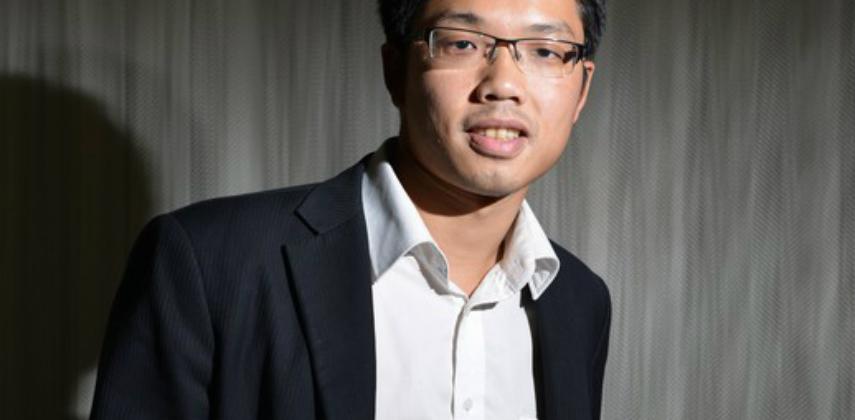Eric Chen Zixiang firmly believes that a suitable marketing strategy is the key to unleashing science and technology’s potential to make the world a better place. As the founder and director of Vitargent (International) Biotechnology, he turned the transgenic fish technology developed by City University of Hong Kong (CityU) into one of the most popular testing methods used by food and product safety laboratories across the region, with the sad and notable exception of his hometown – Hong Kong.
What’s the story behind your passion for science?
From a young age, I believed that science could make the world a better place. I am from Guangzhou and won a scholarship to come to Hong Kong to study e-logistics and technology management at CityU. At university, I had the chance to help Dr Cheng Shuk-han, who developed transgenic fish technology through her research.
Food and product safety has been a major concern both on the mainland and in Hong Kong in recent years, and I hope to make use of science to help more people.
What are the obstacles to carrying out scientific research in Hong Kong?
The government has done an excellent job in providing financial support and venues for researchers but is unwilling to try new technology.
This is extremely disappointing for local research companies. The majority of our clients come from the mainland, as well as from other regions across Asia. However, our own government is not very keen to incorporate the transgenic fish technology into their laboratories. I really hope the government will become less conservative about using new technologies.
What have you learned through setting up your own company?
I have acquired precious learning experience through starting my own business. In all, I think I received a pretty well-rounded training. Legal, marketing and interpersonal communication skills are the most important things I have learned.
I started the company in 2010 with two fellow classmates, after we won the Best of Best Award at the HSBC Young Entrepreneur Awards regional competition in 2009-10 with our business proposal on transgenic fish technology.
Funding was a major problem. I tirelessly approached people from different sectors for funding. I think I spoke to more than 100 parties before I secured around HK$10 million from the government, and from a number of “angel” investors.
What are your plans for your company?
I hope to develop the company to become a platform for leading technology to serve Asia. We have some of the world’s best researchers and I hope to help them live up to their potential by helping them commercialise their technology.
Hong Kong is a good brand name and consumers have shown a lot of confidence in products and technology developed here. I think the “Made in Hong Kong” brand is a great advantage.
I also hope to expand the business on the mainland. I currently spend half my time there trying to build up my business connections. Guanxi is the key to success in doing business on the mainland.
Any advice for science researchers in Hong Kong?
It is a fact that scientific research is not a popular industry in Hong Kong. Many science graduates move on to the financial sector. But if you are passionate about what you do, you can still make a great scientist.
But scientific knowledge is not enough. You have to be diverse, and learn to be an effective communicator and presenter. To succeed you must be persistent. Never give up. I told myself: today is a tough day, tomorrow things are only going to get tougher. But the day after tomorrow might be great.
When I first started raising funds for my company, no one was interested. Hong Kong investors would rather invest in stocks than in scientific research, making it extra tough to attract investors. But I was not discouraged, I kept going and asking, and in the end, I was able to secure the funds I needed.


